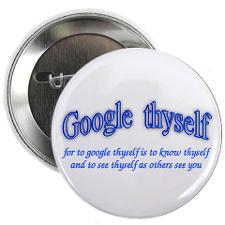Introduction
This module has essentially done two things for me. First, it has given me a greater awareness of the depth of the online cosmos – i.e. the amount of online acitivities one can take part in and the amount of online activities, tools and mediums that are already present. Second, it acted as a slight catalystic change for me to embrace online mediums more.
Digital literacy review
Lets review the digital literacy audit first. In summary, there is slight improvement in the areas of participating in and collaborating in online communitites, building online networks and managing online identity. In the areas of blogging, I am now familiar with the technical aspects of it (navigating and playing around with blogposts) and more importantly, learnt to be objective in providing comments (a fundamental principle for being more online savvy).
While I am still new to Twitter and LinkedIn, I am more aware of the potential both platforms can provide in terms of helping me establish myself professionally.
However, I do admit that I have much to learn and explore. I have to be more familiar with those platforms and be at ease using them. More importantly, I think the idea is not to simply increase my usage of them but to know how to use them in a productive way.
1. The approach you will take to your learning on future modules
This largely depends on the modules themselves. Where online research is concerned, I will still assess the sources of online materials, prefably sticking to more credible sites. I make use of my university library’s online database to gain access into academic journals as well.
For my own learning (outside the university’s curriculum), I do occassionally check out educational videos on TED and youtube. For instance, on the areas of religion and life lessons, I listen to Nick Vujicic and Billy Graham, whose talks have been recorded and uploaded on youtube.
Reflecting on any particular topic
One of my views that was expanded came from topic 1. I like how the authors David and Alison distinguished some of the key behavioural differences between digital residents and visitors in their blog. Their descriptions were very applicable as I could identify with the visitor side of the spectrum. Being predominantly a visitor, I can understand why I may find it more difficult to establish my presence online or be involved in online communities.
2. How you will build your own online professional profile
To be realistic, I will work on my LinkedIn profile first. I have created an account, but I will take some time to select an appropriate profile picture, list the skills and work experiences I have gained, add my connections, get some endorsements and look for groups to join.

For facebook, I will continue to tune my privacy settings and follow some of the companies’ feeds and pages. I will be cleaning up my news feeds to enhance the content that I want to receive.
Lastly, as I am still very new to Twitter, I will increase my usage of it after I have enhanced my LinkedIn and Facebook accounts.
A final note
To that end, thank you Dr. Lisa and team for facilitating this module and using it as a means to encourage us to be more involved online, and to have greater awareness of what we can do online to enhance our career prospects. I admit I did struggle with the learning style of this module, as I am tradionally a more teête-à-tête kind of person. I did however, still took home some meaningful insights and knowledge from this module.
Cheers,
Simon












